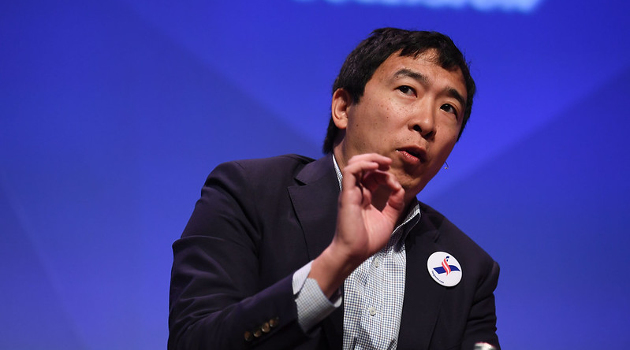When “basic income” became an issue a few years ago, I was instinctively opposed because I don’t want Uncle Sam sending big checks to everyone in the country.
But I admitted that there were a few reasonable arguments for the idea. Most notably, plans for a basic income usually assumed that these checks would be a substitute for the existing social welfare state.
Since that system has been bad news for both taxpayers and poor people, a swap sounds very tempting.
But I’ve repeatedly warned (over and over again) that any theoretical attributes don’t matter because politicians almost certainly would pull a bait-and-switch by adding a basic income on top of all current redistribution programs.
Andrew Yang is now proving my point. When asked about potential budgetary savings to accompany his proposal for basic income, the candidate for the Democratic Party’s presidential nomination asserted that the new handouts would be in addition to the existing welfare state.’
.@cenkuygur asked @AndrewYang what welfare programs he’d end or decrease funding in order to do #UBI
“I would not touch any of our existing programs. The freedom dividend is meant as a complement.” #SteakFry #tytlive pic.twitter.com/wAW8TzHUzr
— The Young Turks (@TheYoungTurks) September 22, 2019
At the risk of understatement, Yang has turned his proposal into an expensive joke.
America’s social welfare state already is unaffordable and he wants to make it a larger burden with a big new entitlement.
But fiscal policy isn’t the focus of today’s column.
Instead, I want Yang’s announcement to be a teachable moment about the “slippery slope.”
Simply stated, we should always be wary about the potential downsides of any possible reform. Especially if the wrong people are in charge.
Indeed, this wariness shall be enshrined as our “Fifth Theorem of Government.”
This Theorem is rather useful when contemplating certain issues.
- There are theoretical reasons why a value-added tax (or a national sales tax) might be attractive as a replacement for parts of the income tax, but we need to be aware that future politicians would almost certainly fully restore the income tax and then use the VAT to finance bigger government.
- A carbon tax might be theoretically attractive if it enabled a big reduction in the regulatory burden and the revenues were used to finance a tax cut, but we already have evidence that such a levy would enable a net increase in the size of government.
And now we know it applies to discussions of basic income.
P.S. Here are the other four theorems.
The “First Theorem” explains how Washington really operates.
The “Second Theorem” explains why it is so important to block the creation of new programs.
The “Third Theorem” explains why centralized programs inevitably waste money.
The “Fourth Theorem” explains that good policy can be good politics.
P.P.S. All these theorems are actually just elements of “public choice,” which is the common-sense economic theory that people in the public sector largely are seeking to benefit themselves.
———
Image credit: Collision Conf | CC BY 2.0.


